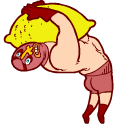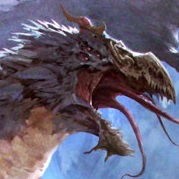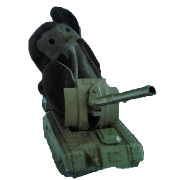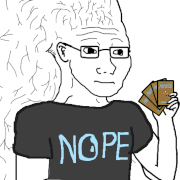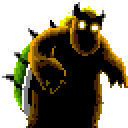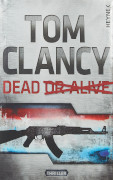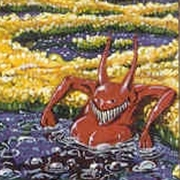|
Pablo Nergigante posted:Surprised that shipwreck sifters is so high. I never seem to get enough spirits or disturb cards to make it worthwhile it's got a very low sample size compared to the rest, people are only playing it when they have a critical mass for it (and when they do it's a two mana 2/3 draw a card with a potential to get bigger, pretty brutal when it works)
|
|
|
|

|
| # ? May 29, 2024 05:27 |
|
i'm guessing this is win % with these cards in the winning deck? is this arena?
|
|
|
|
https://twitter.com/CedricAPhillips/status/1440353803702726658 lol what is this about?
|
|
|
|
HootTheOwl posted:I don't think you understood what I said. I'm saying the Celestus only makes it day if it is not night or day, what real difference does it make if the Celestus always made it day on ETB? Sure it makes the werewolves a little weaker, but ... ok? Because they don't want cards to force day just by entering if it's already night, they want you to have to cast two cards to make it day because Day is already the default, reaching Night is the complicated bit. Plus all those cards have benefits for going from night to day or day to night and if they could ETB make it day they'd potentially get more benefits than they want. Notably, the Red/White Cathar Werewolf absolutely should need you to work to get it back to day because every time it flips it exiles a non-land, and it's in the Red/White colours that want to be swapping day/night for benefits. Basically they care about day/night swapping so if neither has started they make it day when they enter, but they don't mess with an existing day/night state because they don't need to to benefit. It's literally so they're not dead cards if nobody is playing werewolves. I have played with them, the extra wording really never feels clunky because it's just a reminder that hey, if you haven't already played a day/night thing make it day now so that mechanic starts. The mechanic is very fun, intuitive, and it's pretty easy to just when you play your first day starter card (either a werewolf or one of the non-flippers) you put the thing up and then you simply need to remember the no cards/two cards cast thing. Making it trivially easy to swap back to day does in fact screw werewolves heavily, in a set that intentionally changed the werewolf mechanic to make them stronger and easier to do what they want to do.
|
|
|
|
mcmagic posted:https://twitter.com/CedricAPhillips/status/1440353803702726658 If you look at the replies, apparently someone on twitter (today's main character in the MTG twtiterverse) reasoned that BenS going onto LR helped to create the Jan 6 insurrection.
|
|
|
|
Strong Sauce posted:i'm guessing this is win % with these cards in the winning deck? is this arena? Game In Hand Win Rate, ie: percentage of games won when the card is in your hand, whether in a your opener or drawn later in the game. Premier draft (bo3) on Arena, pulled from people that are using the 17lands app. https://www.17lands.com/card_ratings if you want to have a look mcmagic posted:I hadn't seen this but it's interesting that the community pick order is way higher on the black commons than their metrics. I guess i'm in the middle of that group think lol I trimmed the pick rates out but Startle, Sifters and Flip the Switch are all seen around 7th, the rest around 5th.
|
|
|
|
UB and WU are clearly the best pairs but I have found black paired with anything to be good and UG and UR to be horrible.
|
|
|
|
mcmagic posted:https://twitter.com/CedricAPhillips/status/1440353803702726658 The best reply is someone saying this should be made I to am nft.
|
|
|
|
Drewjitsu posted:If you look at the replies, apparently someone on twitter (today's main character in the MTG twtiterverse) reasoned that BenS going onto LR helped to create the Jan 6 insurrection. lmao
|
|
|
|
mcmagic posted:https://twitter.com/CedricAPhillips/status/1440353803702726658 https://twitter.com/AEMarling/status/1440324846450135056 I personally will be holding LSV and Marshall accountable for this.
|
|
|
|
AngryBooch posted:https://twitter.com/AEMarling/status/1440324846450135056 Agreed 
|
|
|
Pablo Nergigante posted:Surprised that shipwreck sifters is so high. I never seem to get enough spirits or disturb cards to make it worthwhile I was very meh on it at first but it's pretty solid. Not exactly a build around but loading up enough synergies to make it a 2/3 or 3/4 is pretty easy and the ETB loot almost always comes in handy.
|
|
|
|
|
couldn't help but notice how that guy has vegan listed as one of his pronouns
|
|
|
|
It isn't even that they had him on, they just refused to publicly ban him when he hasn't been on for years. On keywords, I'm kind of surprised they never keyworded "When ~ enters the battlefield".
|
|
|
|
“Arrival” would work.
|
|
|
|
neaden posted:On keywords, I'm kind of surprised they never keyworded "When ~ enters the battlefield".
|
|
|
|
neaden posted:On keywords, I'm kind of surprised they never keyworded "When ~ enters the battlefield". Same tbh. I have to assume they’ve tested it and found that it’s easier to just write the ETB phrase on the cards than to shortcut it into a word and tell players what it means. They’ve said not bombarding new players with new phrases is why they try to avoid using keywords even if they use the effect (eg. the surveil opt not actually having the word surveil on it) except in a few cases like that newish Tezzeret who has Affinity for Artifacts. I kind of like Arrives as a shortcut tho lol. “When Primeval Titan arrives or attacks…” I guess there’s value in being super explicit tho, I could see new players getting confused if blinking a card causes it to arrive etc. fadam fucked around with this message at 21:49 on Sep 21, 2021 |
|
|
|
Enters the battlefield sounds cool
|
|
|
|
AngryBooch posted:I personally will be holding LSV and Marshall accountable for this. Yeah I’m gonna sign up for their Patreon too
|
|
|
|
Time for them to rebrand their podcast as “Limited Republicans” - they won’t even need to change that LR logo either.
|
|
|
|
Basic Odds and Probability Stuff for Magic the Gathering Players in About 5000 Words, by Leperflesh This is an update of a post I made in the previous thread, by request. Disclaimer: I am not a statistician, nor even especially good at math. I'm not really qualified to talk about statistics and probability, this post may contain significant errors. Also it's only just barely over 5000 words, sorry. Where I'm coming from is:
If you've played hundreds of games of Magic, and some of you have played thousands by now, you may understand a lot of this stuff intuitively even if you've forgotten all the math you got in high school, but this first bit is foundational so let's just review it quickly. Assumption of fairness: In all discussions and examples below, we will assume an ideal universe in which decks are always shuffled to total randomness, dice and coins are always fair and cannot land on their edges or skip off the table, etc. Errors in play, cheating, and defective playing pieces can't be accounted for so we'll ignore them when discussing how the math works. How to talk about odds: All odds of things happening are expressed as a value between 0 and 1. At 0, the event is completely impossible, and at 1, the event is absolutely certain. Between those numbers, we may express the odds as a fraction or a percentage, which are the same thing shown differently. Sometimes a fraction is more convenient, whereas a percentage (which is also expressable as a decimal) is sometimes easier to intuitively grasp, especially when rounded off. For example, "about 12%" or ~0.12 may be easier to intuitively grasp, than 7/59. Odds of drawing cards The odds that you draw any specific card from a shuffled deck on one draw is 1 divided by the number of cards in the deck. At the beginning of the game, playing with 60 cards, a particular card has a 1/60 chance of being on top. After you draw one card, you can see it, and either it's that one specific card or it isn't. If it isn't, the odds that one card will be the next card you draw are now 1/59, because there's 59 cards left. As the deck gets thinner, the odds of drawing that one card increase. When there's only 1 card left, if you haven't seen that one card yet, it must be the next card: the odds are 1/1. If there's multiple copies of a given card, and you want the odds of drawing any one of those copies, divide the number of copies by the number of cards remaining. For example, if you have six forests in your 60-card deck, it's 6/60 chance you'll draw a forest with your first card drawn. You can easily reduce that fraction: 6/60 is 1/10, or .10, or 10%. Remember though, that what you're calculating is the odds of an unseen card from among other unseen cards. If you've been playing a match for a while, what you care about is how many cards are left unseen (e.g., presumed to be in the deck). Extending the previous example, if you have 1 forest in your hand, 3 on the table in front of you, and 40 cards remaining in your deck, what are the odds you'll topdeck a forest? Well, you've seen 4, so you know there's only 2 left. 2/40 is 1/20 or .05 or 5%. The odds of drawing a forest have fallen from where they were at the beginning of the game, because through play you've pulled more than the average draw out of the deck already. OK, that's the foundational stuff. Now we're on to the functional part of the post. Tip 1: estimating the odds using quick mental math I find it much easier to intuitively understand what my odds are when I convert a fraction with a fairly large-ish denominator, or a denominator not divisible by 2, 4, 5, or 10, into a percentage. What's 3/47ths? If you're good at mental arithmetic, maybe you can find that exact number in two seconds, but I'm bad at it and I can't. However, having the exact odds are rarely important in a game. What you really want is useful information - a rough estimate of the odds is good enough for wizard poker - so you can make use of that estimate to inform your play. I taught myself how do to this for poker, so I'll use a poker example. Poker is normally played with a standard "bridge" deck with the jokers removed: 52 cards, which is approximately 50, and that means I can use some rounding-off techniques to make the mental arithmetic easier. Say I have around fifty cards left in my deck. If it's 47 or 53 or whatever, just call it 50. That means I can take the number of copies of a card within that deck that I'm looking for - 1, 2, 3, whatever - and double it, and that's an approximate percentage chance of drawing that card. So if there's 3/47... that's about 3 in 50, double the three and that's 6, so it's about 6%. The actual value of 3/47 is 6.38%. 6% is quite close enough to 6.38% for practical work. While a deck is around 50 cards left, the doubling trick works well. What about at other deck sizes? I like to round the number of cards to one of the numbers in the following list, find my pretty-close percentage, and then I can "fudge" that value up or down a bit at the end, depending on whether I rounded the deck up or down at the beginning. Memorize these values (or maybe make a cheat sheet you can quickly reference during play?) and practice a little, and you'll likely be able to come within two or three percent of the right answer with about five or ten seconds of thinking, every time:
OK. What do you do with this information? Tip 2: A simplified poker example of using drawing odds to make key decisions One thing that's important in poker is "outs." The idea is, OK, you're playing poker, and of the cards that are "yours" - either just your hand, or in some games like Texas Hold'Em, your cards plus community cards - you can either make a hand that is likely to win, or you can't. You use the betting and other information from the game to make guesses about whether you're probably "ahead" or "behind" the other players. When you're behind, you may need to make an estimate of your odds of improving with the next card. (Note: you're actually multiplying your uncertainty about being ahead/behind by your uncertainty of improving.) So, excluding all the cards you've seen (your own cards, cards other players have face up, face up community cards), you can count up how many cards you could be dealt from among those remaining in the deck which would probably improve your hand enough to win a showdown. (Note that even though other players have face-down cards, you don't treat them differently from the cards still in the dealer's deck. I can explain why that is if you care, but for now please just accept it as the case.) Here's a hand. I have 10 Well, I need to know the odds of improving my hand. Which cards improve my hand? A ten would give me three tens, and there's 2 left. A five would give me two pair, and there's 3 fives left. And, there's three clubs on the board plus the club in my hand, so any club gets me a flush! We can see four clubs, so that leaves 13-4=9 clubs left. 2 + 3 + 9 = 14 cards that improve my hand - 14 “outs.” What are the odds? 14 cards that improve me with about 50 cards left in the deck would be 14x2=28%. The odds are actually a bit better, because there's actually (52 - 6) 45 cards left, so I can fudge it upward to more like 30%, or a bit less than a third. Now I know how much money would be an "even" bet - if someone raises ahead of me, such that by calling that raise (to stay in the hand) I'd risk $X to try to win a pot of less than 3x$X, then I'd be paying “losing odds” to call. Ignoring the odds that my "improved" hand would still lose, or that my existing pair of tens could win, I know that I need to be offered 3-to-1 pot odds or better in order to be statistically worth calling. My decision isn't totally made for me (there's complicating factors: my reads, my option to bluff, etc.), but at least now I have a better feel for my situation, and that is information that I can use to make better decisions routinely. In the immediate case whatever the odds of improving might be, I might win or lose due to the luck of the draw: but if I repeat these situations over and over for thousands of hands, on average my results will improve if I call pots where my odds of winning are better, and fold where my odds of winning are worse, even (especially, actually) in edge situations where I'm only a little bit ahead or behind. Tip 3: Applying the principles of probability of drawing outs to Magic: The Gathering Perhaps you can see how the ability to calculate your odds of improving with the next card might apply in Magic. Rather than dealing with monetary bets (I assume), you may be dealing with choices. In a very simplified case: you have one mana left, and more than one card in your hand you could play. One of them is Opt. Should you play the Opt in hopes of drawing a card that takes you from losing next turn to winning next turn? Well, Opt lets you see 1 card, and then either take it, or reject it and draw an unknown card - so effectively, two chances at drawing a critical card. If you are in a binary situation - you may be losing the game now unless you draw one of a few specific cards left in your deck - you can calculate the odds that, of the next two cards in your deck, one of them is a card you need; and compare those odds against playing a different one-drop from your hand instead, perhaps one which you can also roughly estimate the odds of that other effect granting you survival. Tip 4: Understand and reject the gambler's fallacy Beware the gambler's fallacy. The gambler's fallacy boils down to a feeling or conviction that previous events influence the odds of a future event, when the future event is actually independant. Suppose you have drawn five lands in a row. The next card simply can't be a land, that'd be hosed up, right? The odds against drawing six lands in a row are astronomical! No, no, shut down that line of thinking. Those odds were extremely low, before you'd drawn any lands; but now, the five lands in a row are in the past, and those events do not influence your luck. The odds of drawing another land are equal to the number of lands remaining in the deck divided by the number of cards remaining in the deck. Period. If you have 8 lands left and 41 cards left then the odds are 8/41 (roughly 8/40. Using our estimating tricks, each 2 cards in 40 is exactly 5%, so that's about 4x5% = 20%. Actual odds of 8/41: 19.512%. 20% is close enough!). 20% chances happen all the time! There's an 80% chance you won't draw a land and a 20% chance you will and the fact you just drew five lands in a row is irrelevant to that. Statistically, we would say that the future event of drawing a card is independent of past events. There's more ways the gambler's fallacy can affect your thinking. If you know your deck beats their deck around 50% of the time, and you just lost a game to them in which you made no mistakes, you might think now, if you play correctly, you're due to win. You lost the last game, so by the rules of fairness, you're now owed a victory. Certainly you shouldn't lose three games in a row, that'd be horribly unlucky... or unfair, or proof of cheating, or proof that the site that says your deck is as good as theirs is wrong! Well no, the fact you just lost has no effect on the outcome of the next game (we're ignoring that both players have learned about each other's decks, sideboards, player skill, etc.). It's just another coinflip. The universe does not reach down its law of fairness hand and rearrange the cards in the shuffled decks to make sure balance is restored or some poo poo like that. You can flip a fair coin five times and get five heads in a row, and you can play five games and lose them all, and this does not prove that: your opponent is cheating, or you're cursed, or the online statistics that say that your deck is ~50% against their deck must be totally loving wrong, etc. etc. Tip 5: Understand sequential events In the moment of a game, the next draw, coin flip, dice roll, etc. is independent. But when we look at long-term trends, we are analyzing sequences of sequential events collectively, rather than each independent event by itself. Going back to poker for a second, we know that just because there may be only once chance in 45 (or whatever) of drawing the one card we need to win, doesn't mean that that card coming up is impossible, or that - once it happens - we can shake a fist at the universe for producing an "unfair" result. However, if we play dozens, hundreds, thousands of hands, we can expect the universe to produce results that are near to the statistically-calculatable outcomes. Expectation that results will trend towards the average is “reasonable.” It's not a proof, in a mathematical or scientific sense, but it's an approach that will tend to give most people the outcomes they expected. Let's do a quick thought experiment. I'm going to flip a fair coin four times and write down the results. What are the possible outcomes? HHHH HHHT HHTH HHTT HTHH HTTH HTHT HTTT THHH THHT TTHH TTHT THTH THTT TTTH TTTT That's sixteen possible sequences of events. So, we can say, prior to flipping any coins, that each sequence has a 1/16 chance of occurring. Note that only two sequences have four of the same result in a row: four heads, or four tails. So, there's only 2/16 or 1/8 or 12.5% chance, each time we go to flip a coin four times in a row, that we'll either get four heads in a row or four tails in a row. Here's another point worth noting. How many results have exactly the same number of heads and tails - e.g., how many would seem to conform to the expectations of “fair” outcomes our foolish gambler expects, and how many don't? Count them up and you'll find six that have some combination of two heads and two tails. That leaves ten that don't. So 6/16 or 37.5% of the time, the gambler is satisfied, and 62.5%, he starts leveling accusations at the coin-flipper, the coin, God, etc. I think it's interesting to see that in this example, the gambler's own expectations are wrong more often than they're right! An “uneven” result is significantly more likely than an “even” result. What if I ran this experiment sixteen times. Do you think I should expect to get each of the above results exactly once? No: each time I repeat the experiment, there's no more likelihood of getting any one of the above results than any of the others. Expecting to get one of each is just another application of the gambler's fallacy! If we've already repeated this experiment 9 times, and gotten 9 unique sequences, the odds the next sequence would be one of those 9 is higher (9/16) than the odds we'd get one of the remaining 7 (7/16). We're no longer treating each coin flip as a unique event, now we're treating each sequence of four coin flips as one event, and each time we repeat the trial, all sixteen possible outcomes are equally likely as each other, irrespective of what our previously recorded sequences turned out to be. Alright, so what if we run the experiment a bunch of times. We've already decided there's a chance we get the same sequence over and over - maybe all heads, say, or maybe the THTT sequence happens again and again; but since each time we repeat the experiment, there's actually just a 1/16 chance of getting a specific result, over time we can expect the results to trend towards a more or less even distribution from among the sixteen options. This is just as true if we call each dependent event a single coin flip, or ten in a row... or drawing one card from a deck, or drawing four from a deck, or arranging ten cards in a stack, or arranging sixty cards in a stack. To find the probability of two or more independent events occurring in a sequence, we multiply together the probabilities associated with individual events. This works only because the two events are independent: the result of the first event does not affect or influence the second event. So one coin flip coming up heads is 1/2. Two coin flips coming up heads, in a row, is 1/2 times 1/2 = 1/4. Three is 1/2 x 1/2 x 1/2 = 1/8. And four is 1/2 x 1/2 x 1/2 x 1/2 = 1/16. See? Sixteen possibilities, exactly one of which is four heads in a row. We can calculate the possibility of one specific sequence of n independent coin flips as (1/2)n. And we can calculate the number of possible unique sequences as 2n. The reason there's a 2 there, is because there's two sides of the coin. If we roll a d6, there's six options, so we'd use (1/6)n to find the odds of one specific sequence of results on a d6, and the number of possible sequences as 6n. What if we are looking for a specific, shorter sequence within a longer sequence of events? Say we want to know: what are the odds of flipping a coin 10 times and getting a sequence of 6 heads in a row (surrounded by other heads or tails results)? There is a handy tool for this, called the binomial distribution. I don't know how to do this. This wiki page is confusing. Whatever. The point I wanna make is that there's an exponent in the math, and that generally means "the more events there are, and the lower the odds of each event, the number gets really big really fast." Sometimes, it's tricky to calculate the odds of a complex sequence of events. But if you know the odds of each independent event in that sequence, you can program a computer application to use a random number generator to plug in random results of the correct odds for each event into a sequence, record the results, and then repeat the sequence, many many times. Doing this is called a Monte Carlo Simulation and it's a very useful tool if what you want is not "what's the specific outcome I'll get in the casino tomorrow" but rather "how much should we expect all the visitors to the casino for the next month to win and lose" kinds of questions. Tip 6: Sample sizes and variance The more times you test the odds of a thing, whether it's one event or a sequence of them, the more likely it is that your aggregate results closely represent the statistical odds of the events or sequences occurring. Of course, with a given trial run, you could get a wildly aberrant result: but each additional run of a simulation (each new sequence of coin flips, each new shuffle and draw from a deck, each new poker hand) represents another "shot" at the odds. You can brute force a chart of the expected results for a complex statistical event or sequence by just running more and more and more trials of a simulation, which is a thing computers are good at doing. This is hopefully drilled home by now: if you try something just a few times, you should expect your results to be different from the statistical average. Remember the four coin flips in a row. There's fewer options for a statistically average "each side turned up 50% of the time" than there are for an "unbalanced" result. With a small sample size, we expect the results to be unrepresentative. Results that exactly matched the stasticical expecation would actually be remarkable and unusual. Conversely, when you examine larger sample sizes, there's many more opportunities for the results to skew towards the average. I don't want to fill this page with sequences of Hs and Ts, but you can do it yourself if you want: write out all the possible combos of a sequence of, say, six coin flips in a row. (There's 64 of them.) How many have exactly 3 heads and exactly 3 tails? How many are "more average" with a 4/2 or 2/4 mix? How many are "unusual" with a 1/5 or 5/1 mix? There's still only one each of six Hs in a row or six Ts in a row. What you will find if you chart the possible results is that you get a probability distribution on a curve, like this:  What you are seeing is a middle point where results tend to cluster, and then legs on either side where outcomes are less and less likely, and then thin tails where there may be just a few or perhaps only one possible sequence among many to get that most extreme result on either side. In mathematics we call this a Normal Distribution. Don't try to read that page, it'll give you a headache. I'm cribbing from this random tutorial about statistics a bit, so let's go ahead and blatantly steal some graphs to better see what the result of # of trials in a monte carlo sim of coinflips look like. Here is one run consisting of 1000 trials:  And here is one run consisting of 10,000 trials:  Both graphs resemble, but are not identical to, the expected smooth curve of that first chart. But, you can see that the one with ten times as many trials has more "smooth" results than the one with just 1000 trials. They're still not exactly the "expected" outcome (as I said before, that'd be incredibly rare!) but they're pretty close. Close enough that even if we didn't know the odds of flipping a coin and getting heads vs. tails, we could flip a shitload of coints, squint at a chart of the results, and find the odds. Variance can be described as the expectation that our real-world results will deviate from the perfect curve. Variance says, if we flip a bunch of coins, we ought to expect to get results different from a “perfectly even” H-T-H-T-H-T-H-T-H-T... and if we total up the heads and tails of an even number of flips, we ought to “expect” the two totals to be different, not the same. Variance is important in poker because it says "even if you, on average, are playing well enough to have a positive expected value - that is, you'll net positive money in the long term - you must expect there to be long periods where you randomly underperform and others where you randomly overperform." Regardless of whether you're making good decisions, a sequence of independent trials (each card drawn, each hand played, each match or tournament played, etc.) can't be expected to perfectly conform to a particular long-term trend over any shorter period, and in fact is less and less likely to do so the shorter the period you examine. This is also true in wizard poker. The best player in the world should expect to lose several matches in a row to worse players frequently, and should not immediately attribute those losses to some unidentified flaw in their game, nor to the gods of chance having them on a shitlist, nor to someone cheating. Similarly, the worst player in the world may win several games in a row, and should not immediately attribute those wins to an improvement in their play, or the gods of luck looking favorably upon them, etc. Over the years I have seen many a trad games poster state that they have “terrible luck.” They are wrong. What is actually happening - assuming they're correctly reporting their results, which is a big assumption - is that they have experienced an extended period of negative variance. Tip 7: Distribution of cards in a deck If you have a 52-card deck of playing cards, each card is a real physical object. That object can only be in one place at a time: one spot in the deck. If we start laying out a sequence, say: Q For the first card there's 1/52 possibilities. For the second there's 1/51. The third is 1/50. And so on. Remember the math? Instead of independent coin flips, where we're flipping the same coin (or many identical coins), each card in turn reduces the possibilities for the next card, until eventually we get down to just two cards left... a 1/2 chance for a given card to be that one, and finally, a 1/1 chance, the last card can only be the last unpicked card. In mathematics, the term factorial means: the product of a positive integer and all the positive integers less than it. In math, you write a factorial by writing the largest integer with an exclamation point. Four factorial is written as 4! and is equal to 4x3x2x1=24. 5! =120, 6!=720, 7!=5,040, 8!=40,320, and so on. For a deck of cards, the factorial of its number of (unique) cards tells us how many different ways it can be arranged: each individual arrangement represents one of that number of possibilities. A deck with just ten cards is 10! = 10x9x8x7x6x5x4x3x2x1 = 3,628,800 What if you add just one more card? You're multiplying that result by 11. 11! = 39,916,800 Can you see, intuitively, how each additional card you add, increases the possible arrangements of those cards by a factor that is also increasing in size? You may not be able to mentally calculate, say, 24!, but without doing any calculations, you should intuitively sense that it's a biiig honkin' number. And 25! must be twenty five times even bigger-er! With magic: the gathering, in most formats we have several more-or-less identical cards in a deck, which if we treat as the "same card", reduce the possible outcomes. A particular deck arrangement with two forests on top is "the same" as the same deck arrangement with those two forests swapped. Tom Clancy has helped with this bit: Tom Clancy is Dead posted:IIRC you divide the overall factorial by the factorials of whatever duplicates you have, so the simplest mtg example would be 60!/(20!*4!^10) Tom Clancy's “simplest MTG example” is a deck of sixty cards, with four each of ten different cards, plus twenty lands. I think a more common arrangement would be four each of nine different cards plus 24 lands, which would be 60!/(20!*4!9). If I've understood this right. Maybe I didn't. I'm not actually good at math lol. The point is that a big ol deck of cards has so many unique arrangements, even with duplicates, that you should expect every time you thoroughly shuffle your deck, that it's in an arrangement that it's never been in before and will never be in again. The odds of a single arrangement occurring twice in one lifetime are fantastically low, like so low that it's similar to, say, the odds you trip over a grain of sand on a beach, and then return to that beach the next year and trip over the same grain of sand. e. see also: number one pta fan posted:Re: Practical Probability for Planeswalker Poker Leperflesh fucked around with this message at 19:19 on Sep 22, 2021 |
|
|
|
fadam posted:Same tbh. I have to assume they’ve tested it and found that it’s easier to just write the ETB phrase on the cards than to shortcut it into a word and tell players what it means. They’ve said not bombarding new players with new phrases is why they try to avoid using keywords even if they use the effect (eg. the surveil opt not actually having the word surveil on it) except in a few cases like that newish Tezzeret who has Affinity for Artifacts. I feel the same way but tbh i understand it, there are so many keywords already and its not a long phrase
|
|
|
|
Leperflesh posted:Tom Clancy's “simplest MTG example” is a deck of sixty cards, with four each of ten different cards, plus twenty lands. I think a more common arrangement would be four each of nine different cards plus 24 lands, which would be 60!/(20!*4!9). If I've understood this right. Maybe I didn't. I'm not actually good at math lol. I'm also assuming all those lands are basics. With 24 basics and 9 playsets of other cards, it would be: 60!/(24!*4!9)
|
|
|
|
mandatory lesbian posted:I feel the same way but tbh i understand it, there are so many keywords already and its not a long phrase Ya 100%
|
|
|
|
Did up a phoenix deck for historic with a few MID cards in it, play 3 decks in a row running a full play set of Bojuka Bogs.
|
|
|
|
Ok but when the star craft crossover happens at could have lines where we say "Carrier has arrived, trigger"
|
|
|
|
They kind of have that for death triggers. Isn't 'death' just 'a creature is destroyed and is moved to the graveyard'? It more or less works because of people's understanding of the relationship between living things, death, and graveyards. But despite the mechanics of the game working the same way other permanents can't die. Artifacts and enchantments aren't living things and planeswalkers just gtfo. So it's easy to understand what dies means in the context of the rules, I think. I think why they don't keyword ETB is that there is a benefit to bluntly state the rules and context for such a common and simple trigger. Does etb go back to alpha? If it does it's probably a hold over from that. They also recently keyworded mill so it could be just a matter of time too.
|
|
|
|
Darkoni posted:They kind of have that for death triggers. Isn't 'death' just 'a creature is destroyed and is moved to the graveyard'? It more or less works because of people's understanding of the relationship between living things, death, and graveyards. But despite the mechanics of the game working the same way other permanents can't die. Artifacts and enchantments aren't living things and planeswalkers just gtfo. So it's easy to understand what dies means in the context of the rules, I think. But also only happened mostly because Innistrad the first was going to introduce Morbid, and as an ability word Morbid has to explain itself every time ETB comes from m10 When they made a significant change and renamed "in play" to "the battlefield". Before that the term was "comes into play" E:yes, it was m10 HootTheOwl fucked around with this message at 00:19 on Sep 22, 2021 |
|
|
|
Darkoni posted:They kind of have that for death triggers. Isn't 'death' just 'a creature is destroyed and is moved to the graveyard'? It more or less works because of people's understanding of the relationship between living things, death, and graveyards. But despite the mechanics of the game working the same way other permanents can't die. Artifacts and enchantments aren't living things and planeswalkers just gtfo. So it's easy to understand what dies means in the context of the rules, I think. Looking it up, they created ETB for that weird Portal expansion designed for newcomers and they liked it so much they decided to introduce it in Visions. So it goes back to 1997
|
|
|
|
Pablo Nergigante posted:Looking it up, they created ETB for that weird Portal expansion designed for newcomers and they liked it so much they decided to introduce it in Visions. So it goes back to 1997 it looks like portal used "comes into play"... unless you meant the mechanic? 
|
|
|
|
To me, "ETB" makes it clear we're not talking about when a spell is still on the stack (which a term like "comes into play" might still leave as ambiguous, but "arrives" I feel like would work). The Battlefield as a keyworded zone draws my attention to the fact that there's zones and they are distinct, in a way that "comes into play" wouldn't. I think these days they're at least somewhat aware that any keyword they come up with needs to be distinctive in all the different languages they print, too.
|
|
|
|
Darkoni posted:They kind of have that for death triggers. Isn't 'death' just 'a creature is destroyed and is moved to the graveyard'? It more or less works because of people's understanding of the relationship between living things, death, and graveyards. But despite the mechanics of the game working the same way other permanents can't die. Artifacts and enchantments aren't living things and planeswalkers just gtfo. So it's easy to understand what dies means in the context of the rules, I think. 'dies' technically works for any permanent, they just don't use it when referring to noncreatues. It just means 'moves to the graveyard from the battlefield'. The reason it works so well though is it just makes sense, especially with the graveyard being called what it is. Replacing etb with another word saves a few letters, which isn't often that important, but requires a new player to learn another concept, that 'whatever' means 'moves to the battlefield', whereas 'enters the battlefield' only requires knowing what the battlefield is, something required to play and pretty simple, 'enters' more-or-less uses it's normal English meaning, it's not a defined term in magic outside of the specific phrase.
|
|
|
|
Darkoni posted:They kind of have that for death triggers. Isn't 'death' just 'a creature is destroyed and is moved to the graveyard'? It more or less works because of people's understanding of the relationship between living things, death, and graveyards. But despite the mechanics of the game working the same way other permanents can't die. Artifacts and enchantments aren't living things and planeswalkers just gtfo. So it's easy to understand what dies means in the context of the rules, I think. I looked it up because I did not remember ETB being a thing back in the olden days. Sure enough, it was first introduced in Portal, then added to main-set Magic in Visions, and fully replaced the phrase “comes into play” in Magic 2010. E: beaten badly lol
|
|
|
|
"enters the battlefield" was absolutely not introduced in visions. it was changed around magic 2010 apparently (according to this) edit: do you guys mean etb effects? kalvanoo fucked around with this message at 01:37 on Sep 22, 2021 |
|
|
|
Yes, yes they do. It was "comes into play" between portal and M10, which then you had "in play" the zone, "play" the verb, and "cast" the verb. We've still got the play/cast issue, but at least play only means one thing now.
|
|
|
|
Yeah, I more or less meant any kind of enters play kinda effects. I'm a pretty recent player (Dominaria), so portal and m10 might as well be the same year for me.
|
|
|
|
Fantastic Foreskin posted:Yes, yes they do. It was "comes into play" between portal and M10, which then you had "in play" the zone, "play" the verb, and "cast" the verb. We've still got the play/cast issue, but at least play only means one thing now. Yeah before they introduced "Cast" as a verb they used "play", and it lead to some truly wretched wording, like on Furnace Dragon  It was fun explaining to people that cheating it in via Tooth and Nail did not do what they wanted it to do. The new wording is "When Furnace Dragon enters the battlefield, if you cast it from your hand, exile all artifacts." which is much clearer.
|
|
|
|
They still use "play" as a verb to mean put a land card onto the battlefield or cast a spell, eg
|
|
|
|
say no to scurvy posted:They still use "play" as a verb to mean put a land card onto the battlefield or cast a spell, eg Yup, play is used for both: quote:701.14b To play a card means to play that card as a land or to cast that card as a spell, whichever is appropriate.
|
|
|
|

|
| # ? May 29, 2024 05:27 |
|
say no to scurvy posted:They still use "play" as a verb to mean put a land card onto the battlefield or cast a spell, eg Isn't this specifically to denote when you can play a land off these types of cards as you never "cast" a land?
|
|
|













